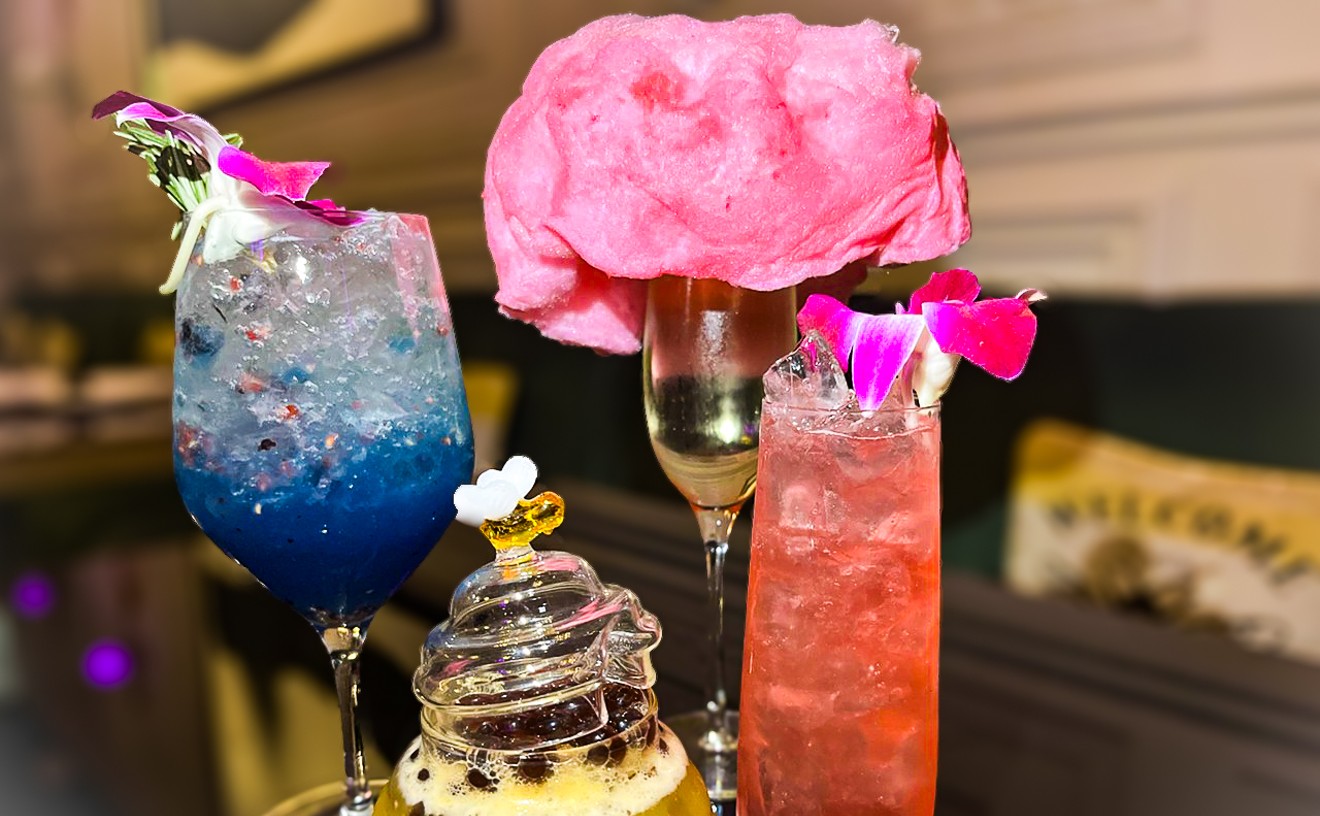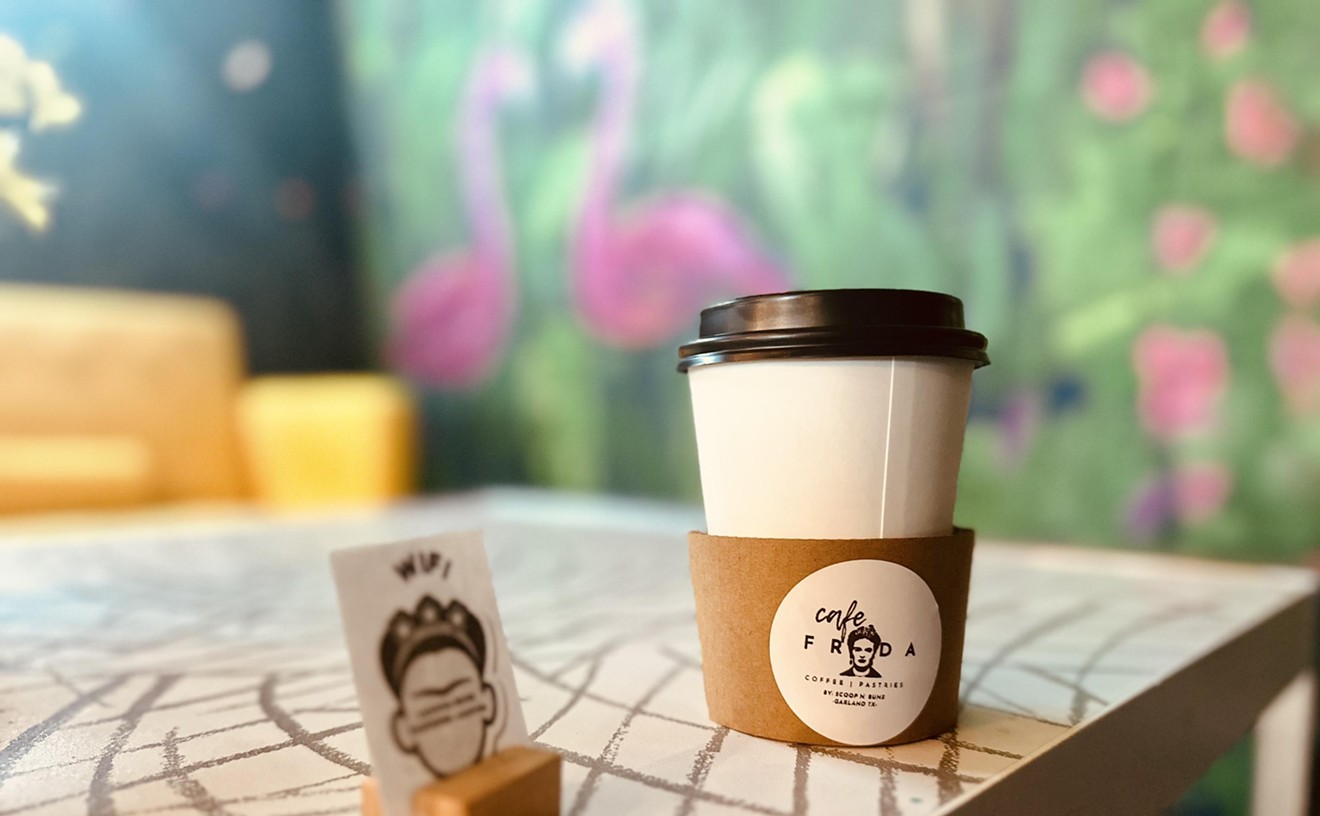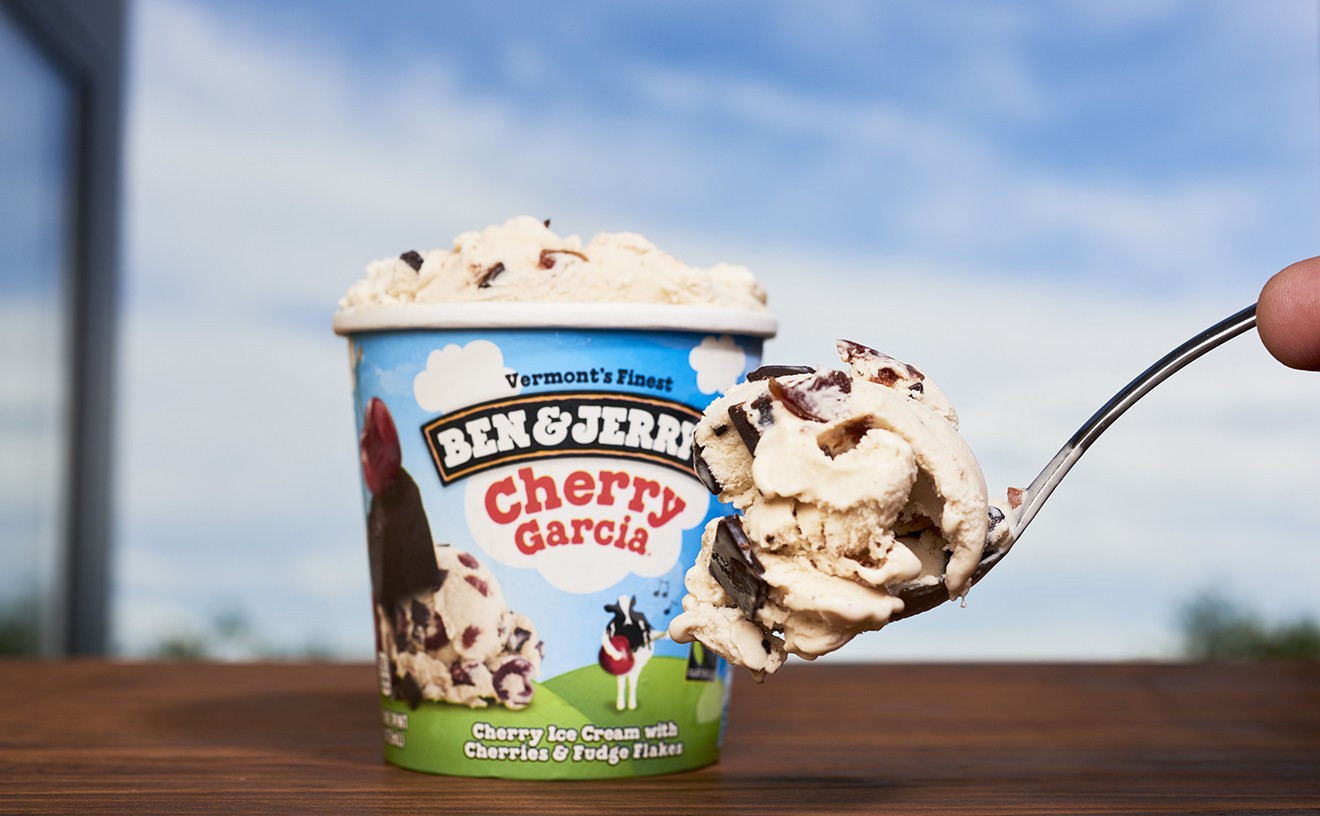Yet "just a cigar" might be too dismissive for the tastes of more than 1,000 dedicated cigar smokers who gathered last week in Dallas to puff on their favorite imported agricultural product and rack up outlandish dry-cleaning bills.
The event was the "Big Smoke," a touring gala sponsored by Cigar Aficionado magazine, and aside from a bevy of strippers handing out complimentary passes to the Men's Club, the Big Smoke avoided sexual symbolism. Serious smokers equate cigars with fine wines or single-malt scotches. Taste-test notes in the magazine at times read like the result of some deranged cookbook: "rich notes of coffee beans, nuts, and pencil lead" or "chocolatey and earthy with notes of sweet cocoa and a touch of leather." Hmmm. So that's what happens to all that old automobile upholstery. Despite the odd flavor comparisons, at the peak of the recent boom, American retail shops imported more than 500 million premium cigars.
Of course, that was in 1997. Cigar sales have plummeted 40 percent since then, throwing shops and manufacturers out of business. Yet few in the industry seem particularly concerned.
"It's mostly a matter of perception," says Cigar Aficionado executive editor Gordon Mott of the cigar bust. When the magazine was launched nine years ago, the industry ran flat, importing about 100 million premium cigars per year. Shortly thereafter, the industry boomed--like pet rocks in the '70s and chicken wings in the '80s--reaching 512 million in the peak year of 1997. "But the market wasn't really that big," Mott explains. A number of mediocre producers and opportunists jumped onboard, creating a cigar glut. "It's taken two to three years to work through that surplus," Mott says. "But supply and demand have now reached equilibrium." Matthew Siebenlist of Private Plantation Cigars on Oak Lawn agrees. "There is definitely a downturn over the last four years," he says, "but the market is at a higher level." Indeed, last year some 290 million premiums entered the country, almost triple the 1992 level.
Hence the confused public perception. The boom is over, sales are off, but things are better than ever in the industry. "You get a cleansing effect," explains Nick Perdomo, president of Nicaragua's Tabacalera Perdomo, manufacturer of several top cigar brands. "Now, we have the serious people who enjoy cigars, not the ones who do it because it's cool." Perdomo describes the boom as his company's worst time: It put extreme stress on a labor-intensive industry. "Little cigar stores were ordering 200 boxes at a time," he recalls. "It didn't make sense." As the market tumbled back to equilibrium, Perdomo's business jumped 55 percent.
Yet this is an industry locked in an almost constant battle against misperception. A wave of newspaper articles in 1998 and 1999 declared cigar smoking a health hazard on the same level as cigarettes. Oddly enough, these articles all cited a 1998 National Cancer Institute study that found that daily cigar smokers suffer from oral and esophageal cancer at rates nearly equal to cigarette smokers but face significantly lower risks of lung cancer, coronary heart disease, and chronic lung diseases. A 1985 study by the American Cancer Society reported that over a 12-year period, daily cigar smokers--meaning one or two cigars per day--died at a rate 2 percent higher than nonsmokers. Cigarette smokers, however, keeled over at a rate 69 percent higher.
"We see it as a different behavior," Mott says. Local bar managers tend to agree. "The people who care about cigars don't need the big crowds," explains Jordan Lowery of Whisky Bar on Greenville. "They come in earlier in the night before the crowds. They're more sophisticated and a little more liberal with their cash." Of course, to make the place tolerable, Whisky Bar installed two smoke-filtration systems and six fans.
Other misperceptions include the widespread belief that cigar rollers spit on the leaves to hold them together (they use a vegetable gum); that machine-made cigars such as Dutch Masters or White Owl taste like premiums ("you could probably go out and cut some grass, roll it up, and get the same taste as those cigars," says Siebenlist); and that Cubans produce the finest cigars of all. "I hate them," says Cameron Call at Tobacco Club on Trinity Mills. "They're very robust. Anyone who likes a mild cigar shies away from those." Cuban cigars deliver a kick not unlike being punched in the head from the inside. "Personally, I love Cubans," Siebenlist claims, almost assuredly meaning cigars. "But Dominican Republic tobacco is the finest on the market, full-bodied and smooth without bitterness." It may even taste of pencil lead and leather. Perdomo, whose family rolled cigars in Cuba for decades before the U.S. embargo, agrees. "Their cigars today are inferior to those of yesteryear," he says. "Manufacturers in Nicaragua and the Dominican Republic really produce a better product."
Yet the embargo artificially inflates both the image and the price of the illegal cigars. A box of Romeo y Julieta Churchills, for example, costs $148 in Cuba, $700 at a cigar shop in Canada (La Casa del Habano in Windsor, across from Detroit), and $433 in the duty-free shop at Heathrow airport, London. But that's a small price to pay for sanctions that drove Castro out of office, turning Cuba into a wealthy and democratic country. Wait a minute...
Yes, every smoker suffers so that a few rabid anti-Castro immigrants can spew boastful comments on CNN and defy American laws. But you'll find no bitterness here.
The embargo against Cuban imports creates a sizable amount of smuggling by otherwise law-abiding citizens and a huge counterfeit market. A year ago, Dominican officials seized 400,000 fake Montecristos, Romeo y Julietas, and Cohibas--a haul valued at more than $5 million. Another raid several months later nabbed 118,000 counterfeits. One enterprising shop owner, Lewis Rothman of JR Cigar in New Jersey, even started selling Genuine Counterfeit Cuban Cigars. His genius customers purchased 7,000 boxes in two weeks.
But the Big Smoke was an evening free from all of that stuff. Smokers spent three hours sampling and picking up freebies. "It was a cigar smoker's dream," says attendee Ray Richardson. "The food was fantastic, the spirits were plentiful, and the cigars were out of this world."
And aside from the strippers' breasts, no one had to worry about fakes.










